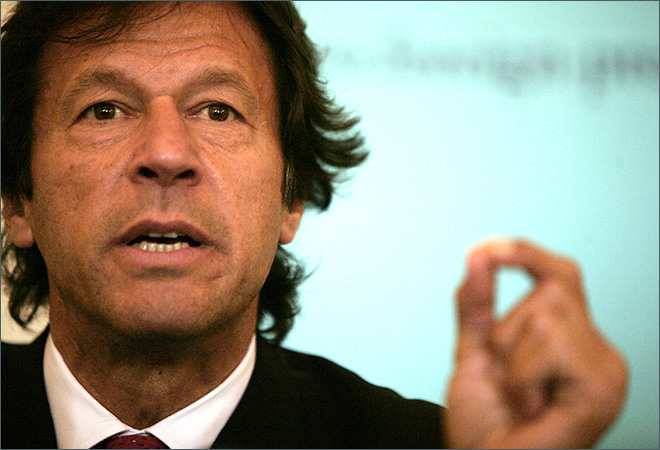-
CENTRES
Progammes & Centres
Location
Any future terrorist attack could be met by a response to a contour shaped by the Balakot action.

To turn a Leninist dictum on its head, that having taken two steps forward, the time may have come to take one step back. Often a precipitous advance ends up opening your flanks for counter attack.
We have taken two steps forward: first, the action of using air power as an instrument of counter-terror is one huge step. The second step has been the decision to take the war against terrorism to Pakistan proper.
The foreign secretary’s statement of 26 February said that “India struck the biggest training camp of JeM in Balakot” neglecting to add that this was in Pakistan, which was probably an element of deliberate ambiguity. He described India’s action as a “non-military pre-emptive action.. specifically targeted at the JeM camp.”
Having done this, the time has come to de-escalate. In doing so, note, you will still be a step ahead of where you started from. In other words, any future terrorist attack could be met by a response to a contour shaped by the Balakot action.
We should not be under any illusion that we have finished terrorism in J&K by this one action. Indeed, like the so-called surgical strikes that failed to deter the JeM, the current action could also trigger a greater use of terrorism by Pakistan, because it lacks other instrumentalities to offset India.
We should not be under any illusion that we have finished terrorism in J&K by this one action. Indeed, like the so-called surgical strikes that failed to deter the JeM, the current action could also trigger a greater use of terrorism by Pakistan.
Therefore, the strategy of two steps forward, one steps back is important because it could, if effectively executed, put us on a path of slowly strangulating the terrorist monster in Pakistan. After the military action, the time has come for India to work along the other pressure points such as Pakistan’s economy, its ethnic fault lines and its diplomatic alliances. The government has indicated that it intends to move in all these areas, what is needed is an over-arching strategy and effective follow-through action.
The time is propitious for a de-escalation because both India and Pakistan have so far acted with studied restraint. Take the Indian statement which couched its action within the ambit of pre-emptive self-defence and made it clear that it was not targeting Pakistani state entities, but a UN proscribed terrorist organisation. It also recalled the fact that the Government of Pakistan had, itself, given a commitment in January 2004 “not to allow its soil or territory under its control to be used for terrorism against India.”
 As India’s economy takes off, Pakistan’s dilemma becomes even more acute. Photo: Daniel Berehulak/Getty
As India’s economy takes off, Pakistan’s dilemma becomes even more acute. Photo: Daniel Berehulak/Getty
For its part Pakistan said that its action of 27 February was “not a retaliation” but with the “sole purpose being to demonstrate our right, will and capability for self defence.” In line with this, its fighters struck at non military target to avoid human loss and collateral damage.
The two statements bring out the respective compulsions of the two countries. After suffering the worst single attack on its security forces in the Pulwama suicide attack, and having failed to deter earlier JeM attacks, India felt compelled to up the ante dramatically in a bid to reinforce its determination to deter the Jaish.
For its part, Pakistan, which obsesses about the allegedly existential threat it faces from India, could not allow itself to be seen as weak or lacking in requisite determination to confront India.
But both sides left enough room in their action and their narratives to allow them to take a step back now.
For its part, Pakistan, which obsesses about the allegedly existential threat it faces from India, could not allow itself to be seen as weak or lacking in requisite determination to confront India.
The attitude of the international community is crucial in this. To start with the US, EU and Japan had been largely sympathetic of the Indian position. China surprised Pakistan by its even-handed stance.
But after the 27 February events, the tone and tenor of remarks is changing. Leaders, legislators and experts are now calling for de-escalation and dialogue.
It would be useful for New Delhi to move on this track now. It may not end terrorism, but it will be an additional step in deterring Islamabad from using it as an instrument. India’s astute mix of military force and diplomacy during the Kargil crisis ensured that in the end, Pakistan was the net loser. Not only was it forced to vacate its incursions, but the international community started upholding the notion of the “sanctity of the Line of Control.”
This may be an ideal outcome, but not necessarily the one that occurs. Having handled things with a degree of restraint, either of the two sides could over-reach. There are compulsions that cannot be ignored. This is election season in India and the BJP is making full use of the Balakot strike to shore up its election campaign. Speaking at a campaign rally in Rajasthan shortly after the strikes, Modi himself declared that India was in safe hands as a result of the strike.
India’s astute mix of military force and diplomacy during the Kargil crisis ensured that in the end, Pakistan was the net loser.
And then there is Pakistan which was born out of Jinnah’s desire to somehow provide parity between the Muslims of the subcontinent, who constituted some 30 per cent of the population, with the majority Hindus. After independence, Pakistan’s single-minded focus was on obtaining “effective parity” with India. Towards this end, first, it spent an unconscionable proportion of its government revenues on defence and structured its forces to deal with an Indian threat. Second, it sought external alliances; third, it developed nuclear weapons and finally, fourth, it created the instrumentality of terrorism to check India.
As India’s economy takes off Pakistan’s dilemma becomes even more acute. Indian economic growth not only translates into economic strength, but also bigger defence budgets and greater international sympathy. As it is, Islamabad’s is being left behind when India spends more than nearly $50 billion on defence annually, while Pakistan spends less than $10 billion. It is only New Delhi’s failure to effectively restructure and reform its defence machine that enables Pakistan to even maintain a semblance of “effective parity” in military terms.
In the present circumstances its external allies are unwilling to openly back its adventurist use of terrorism and so are of limited value. Worse, Pakistan’s economy is fragile and teetering on the brink. So, the road to effective parity leads to reliance on nuclear weapons and terrorism. For this reason, the Indian strategy needs to be geared to a combination of means, rather than just the military instrumentality. The aim is to systematically asphyxiate terrorism, rather than decapitate it.
The views expressed above belong to the author(s). ORF research and analyses now available on Telegram! Click here to access our curated content — blogs, longforms and interviews.

Manoj Joshi is a Distinguished Fellow at the ORF. He has been a journalist specialising on national and international politics and is a commentator and ...
Read More +